 Petzlover
Petzlover Appenzell Mountain Dog is originated from Switzerland but Kunming Dog is originated from China. Appenzell Mountain Dog may grow 12 cm / 4 inches shorter than Kunming Dog. Appenzell Mountain Dog may weigh 6 kg / 13 pounds lesser than Kunming Dog. Both Appenzell Mountain Dog and Kunming Dog has same life span. Both Appenzell Mountain Dog and Kunming Dog has almost same litter size. Both Appenzell Mountain Dog and Kunming Dog requires Moderate Maintenance.
Appenzell Mountain Dog is originated from Switzerland but Kunming Dog is originated from China. Appenzell Mountain Dog may grow 12 cm / 4 inches shorter than Kunming Dog. Appenzell Mountain Dog may weigh 6 kg / 13 pounds lesser than Kunming Dog. Both Appenzell Mountain Dog and Kunming Dog has same life span. Both Appenzell Mountain Dog and Kunming Dog has almost same litter size. Both Appenzell Mountain Dog and Kunming Dog requires Moderate Maintenance.
 Hailing from the Appenzell region of Switzerland and known as the Appenzeller Mountain Dog or the Appenzeller Sennenhunde, this athletic breed of dog has a history which is debatable and which has several theories.
Hailing from the Appenzell region of Switzerland and known as the Appenzeller Mountain Dog or the Appenzeller Sennenhunde, this athletic breed of dog has a history which is debatable and which has several theories.
It is believed the dog is descended from Molossus.The Appenzeller Mountain Dog is one of the 4 recognized Swiss Sennenhunds, appearing to have descended from cattle dogs. The first breed club was founded in 1906 by Albert Heim. However, an early reference to the breed's predecessors was made in a book of 1853, where it refers to dogs in the Appenzell region.
In 1898 the Appenzeller Mountain Dog was shown at the first international dog show and was recognized internationally as a separate breed in 1989.
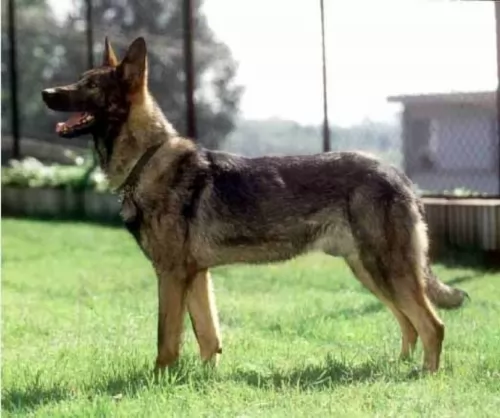 Known also as the Kunming Wolfdog, the Kunming Dog is similar in looks to the German Shepherd Dog, but the coat is recognizably shorter.
Known also as the Kunming Wolfdog, the Kunming Dog is similar in looks to the German Shepherd Dog, but the coat is recognizably shorter.
It’s an attractive looking wolf-like dog which comes from China. It isn’t quite clear which dog breeds were used in the gene pool for these Kunming wolfdogs. You can see though that the German Shepherd as well as other wolfdog-crosses have played a part in the breed's origin.
The dog was created in the early 1950s for military- and guard dog purposes. In 1988, the Chinese Public Security Bureau officially recognized the Kunming Dog as a breed. Today, the dog is still used in military and police services.
 The Appenzell Mountain Dog is a medium-sized dog standing at between 47–58cm at the withers and weighing in at 22–32kg.
The Appenzell Mountain Dog is a medium-sized dog standing at between 47–58cm at the withers and weighing in at 22–32kg.
He is a heavy-built dog and sports a tri-color coat – black, tan and white. He has a double coat with the topcoat being shortish, thick and straight. He sheds throughout the year and isn’t hypoallergenic. He has small ears which are high set and which are floppy. The tail is long and curls when held high.
The Appenzell is an active breed who has been used to herding, fetching and working. Because of his energy levels, he won’t fit in well in a small home where his energy needs can’t be met. However wherever he is, he bonds closely with his human family and thrives on attention from them.
He isn’t known as an aggressive dog, but if as a working breed, he felt that the livestock he was guarding was under threat, he could exhibit some aggressiveness.
He gets on well with children in the home and other pets but is inclined to be wary of strangers. Just as with any other dog, training and socialization does wonders for him, making him relaxed and obedient around people and dogs.
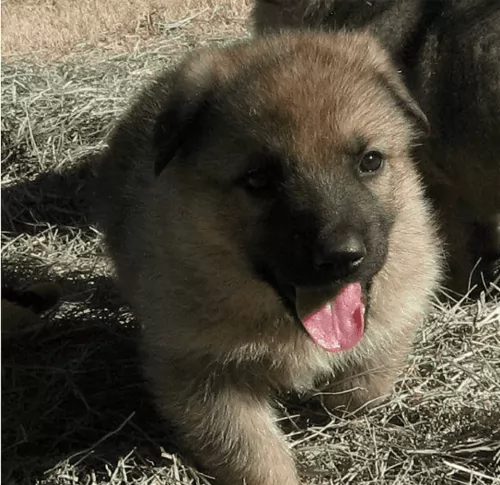 The Kunming is a large dog, athletic and muscular, standing at 60 – 68cm and weighing 30 – 38kg. They are dogs which fall under the Spitz type category.
The Kunming is a large dog, athletic and muscular, standing at 60 – 68cm and weighing 30 – 38kg. They are dogs which fall under the Spitz type category.
The dog has a coat which is considered seasonal - double layered in the cooler months and shedding to a shorter coat in the hotter months. The thick coat can be a light tan color to white and he has a black saddle pattern, giving the dog an overall black and tan combination.
The bushy tail is long and its carried down and low except when the dog is excited and alert, then it lifts its tail. The ears are erect like that of the German Shepherd or Wolf.
He isn’t the best breed for a first time owner as he is very strong willed and can tend to become aggressive. It is why he has been used to perform tasks in the military.
These dogs are known for their alertness, and to keep him mentally balanced and amicable, he will need a strong, firm owner who is also fair, patient and consistent. Bored and frustrated, a Kunming can become unpredictable and a first time dog owner might not be able to cope with such an independent, strong-willed, determined, confident dog.
He is also energetic and intelligent, making a great family dog as he is loyal, loving and devoted. His intelligence allows him to learn easily too. Training and socialization will be required if you want him to be obedient.
He is adaptable and can adjust to life in the city or the countryside, but essentially he is better suited to a home with large grounds as he is a dog which is full of energy.
 Herding dogs tend to be independent and somewhat reserved but the Appenzell Mountain Dog is social, outgoing and loving with his human family. When trained and socialized he gets on well with other pets as well as children in the home.
Herding dogs tend to be independent and somewhat reserved but the Appenzell Mountain Dog is social, outgoing and loving with his human family. When trained and socialized he gets on well with other pets as well as children in the home.
He is a working dog, and thrives on being active, so a good amount of exercise will be necessary. He is a courageous, affectionate dog and when you give him the right upbringing and treat him as he deserves to be treated, he becomes a splendid pet.
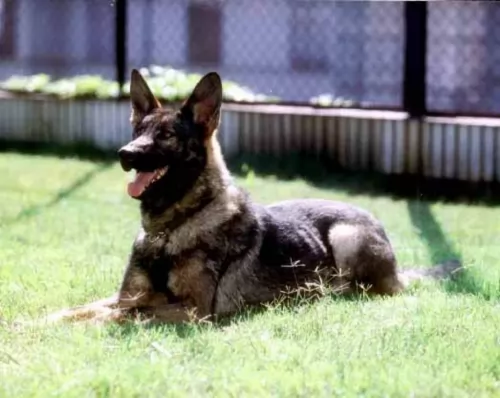 Your attractive Kunming dog is an energetic, lively dog who is going to require a good deal of exercise as he was developed to be a working dog.
Your attractive Kunming dog is an energetic, lively dog who is going to require a good deal of exercise as he was developed to be a working dog.
They are loving towards their human families and even well behaved with other dogs in the family. He will however need socialization and training from a firm, fair, consistent owner.
Provide him with a loving environment, lots of exercise, wholesome food, a warm, dry place to sleep and lots of mental and physical stimulation, and you’ll have a wonderful, contended pet and companion.
 There are some health problems with dogs which are inherited. It is why some people insist on getting certificates from breeders to show that the parents were cleared of certain diseases such as hip and elbow dysplasia.
There are some health problems with dogs which are inherited. It is why some people insist on getting certificates from breeders to show that the parents were cleared of certain diseases such as hip and elbow dysplasia.
Certainly, it’s a known fact that many health problems can be prevented by the way you feed your dog and the way you raise him.
If you suspect your pet is suffering with an ailment that is making him lethargic and run-down, get him to the vet immediately.
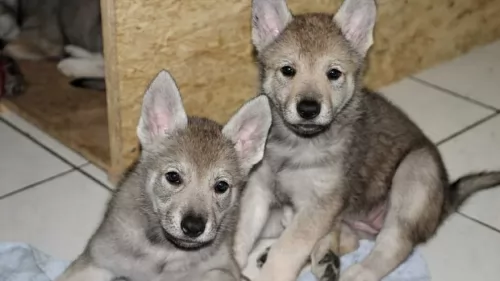 Your Kunming can reach 12 to 14 years of age if he is loved, fed correctly and adequately exercised. Just as with any dog, he can be susceptible to some of the common dog illnesses. These include the likes of hip dysplasia, bloat, epilepsy, eye problems, ear infections, intestinal parasites, heart disease and skin problems.
Your Kunming can reach 12 to 14 years of age if he is loved, fed correctly and adequately exercised. Just as with any dog, he can be susceptible to some of the common dog illnesses. These include the likes of hip dysplasia, bloat, epilepsy, eye problems, ear infections, intestinal parasites, heart disease and skin problems.
Worms are a chronic problem in dogs and the thing is, they can infect humans too. If you don’t treat worms in your dog, it can lead to your pet becoming seriously ill. You may notice loss of appetite, a dull, thinning coat, anemia and diarrhea.
The vet will be able to offer a treatment that can help with eradicating hook-, round- and tapeworms.
This may sound like a mild dog disease but it can cause a lot of misery for your pet. You’ll notice your pet licking, scratching and biting at raw, red spots on his skin. With bacterial- or yeast infections, your pet can battle with itchiness, pain and discomfort. Luckily your vet can recommend treatments to effectively alleviate symptoms.
 You want your Appenzell Mountain Dog to maintain his thick shiny coat, and because he sheds throughout the year, a good brushing twice a week will benefit him.
You want your Appenzell Mountain Dog to maintain his thick shiny coat, and because he sheds throughout the year, a good brushing twice a week will benefit him.
Dogs with hanging ears, such as this dog, are always more prone to ear infections, requiring more attention to the inside of the ears. Clean, dry ears resist ear infections.
The Appenzeller is a working dog, used to being active all day, so he will require a lot of exercise. He just loves being outdoors, and while he adapts to city- and country life, he will prefer living in the country. Take him for walks, play ball with him and allow him to run with you when you go jogging or cycling.
A young adult Appenzeller Sennenhunde will require a different calorie intake compared to a dog that has been spayed or neutered or a puppy that is still growing. You need to watch your dog’s age, his size and the particular season of his life he is in and adjust his food intake.
Kibble is good and well, and there are excellent brands packed with nutrients, but your furry friend will require brown rice, vegetables and cooked chicken mixed into his kibble from time to time as well as raw meat added in when possible.
An excellent diet is important for the wellbeing of your pet, and always ensure that fresh, cool water is available.
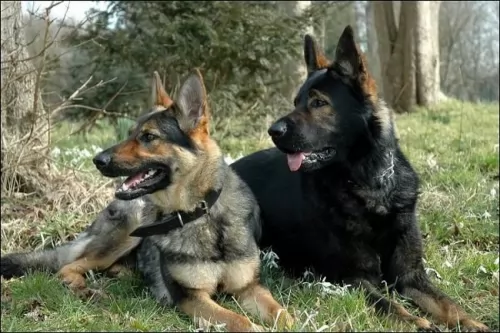 Grooming for the thick coat should be done regularly. The dog sheds quite a bit and seasonally and you'll want to brush him twice a week to rid the coat of those loose hairs.
Grooming for the thick coat should be done regularly. The dog sheds quite a bit and seasonally and you'll want to brush him twice a week to rid the coat of those loose hairs.
The Kunming Dog is high energy and will therefore suit a family who is active and sporty. He is the kind of dog that you can include in all your activities – walks, hikes, running next to you when you go cycling and swimming.
This is an active dog and you want the best food for him, packed with vitamins and minerals to keep him lively and energetic. Instead of giving him one large meal a day that he gulps down quickly, split his food into 2 smaller meals.
Your dog’s age, his breed and his energy levels will direct you as to how to feed him.
Remember, that although commercially manufactured dog foods need to comply with certain standards, it doesn't guarantee their goodness. It may not be digestible for your pet. If you want to use one of these foods, choose the best there is and try to mix in some wholesome home-made food from time to time.
Cooked chicken, brown rice or pasta and some raw or cooked vegetables can be excellent for him as well as adding in some raw meat occasionally.